Industries push back as Miami-Dade moves forward on outdoor worker heat protections
Miami-Dade County’s construction and agriculture workers moved one step closer Monday to having a legally protected right to water and shaded breaks on hot days — but pushback from both industries makes some key details and the future of the county bill far from certain.
The five Miami-Dade County commissioners on the community health committee voted 4-1 in favor of the bill, setting it up for a final vote in front of the full 13-member Board of Commission some time in October.
If passed in its current form, the bill would require construction and agriculture companies with five or more employees to guarantee workers access to water and give them 10-minute breaks in the shade every two hours on days when the heat index hits 90 degrees. It would also require employers to train workers to recognize the signs of heat illness, administer first aid and call for help in an emergency.
Companies that repeatedly fail to follow the standards could face fines up to $3,000 per violation per day.
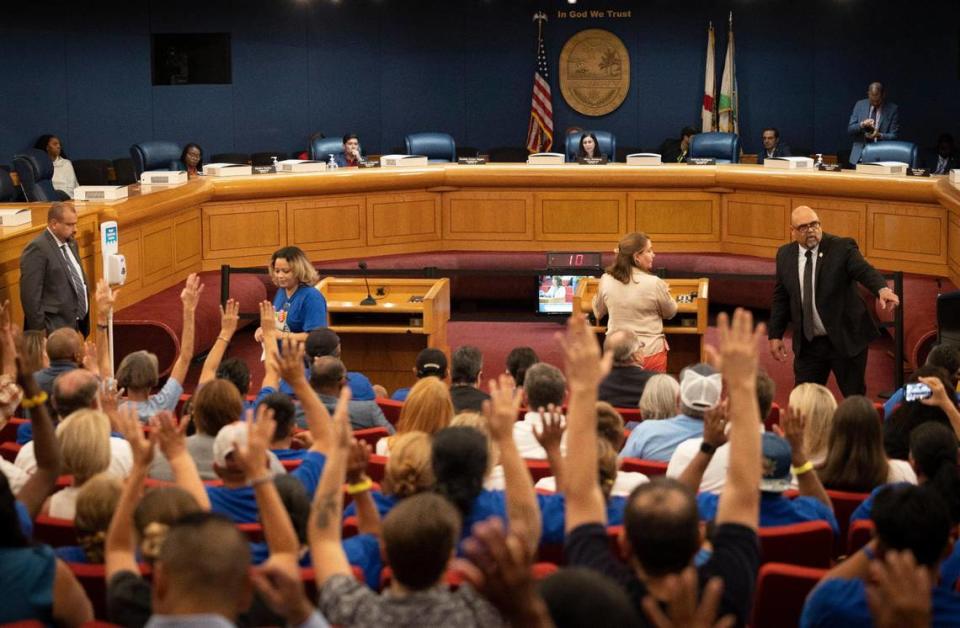
“We’re workers who have suffered cramps, chills, vomiting, dizziness, fainting and put our lives at risk,” said Pedro Marcos Raymundo, a construction worker, roofer and member of WeCount, an advocacy group that organizes outdoor workers in South Florida. “Workers like me deserve water, shade and rest and we need to be trained on the symptoms of heat illness. Our lives can’t be at risk to make the owners rich.”
The threat of heat illness became more pronounced than ever this summer, which broke all-time temperature records. Thanks to climate change, scientists expect South Florida’s hottest days to become more common.
But the heat standard’s main sponsor, Commissioner Kione McGhee, warned that the bill would change in response to pressure from lobbyists in the construction and agriculture industries who oppose the measure.
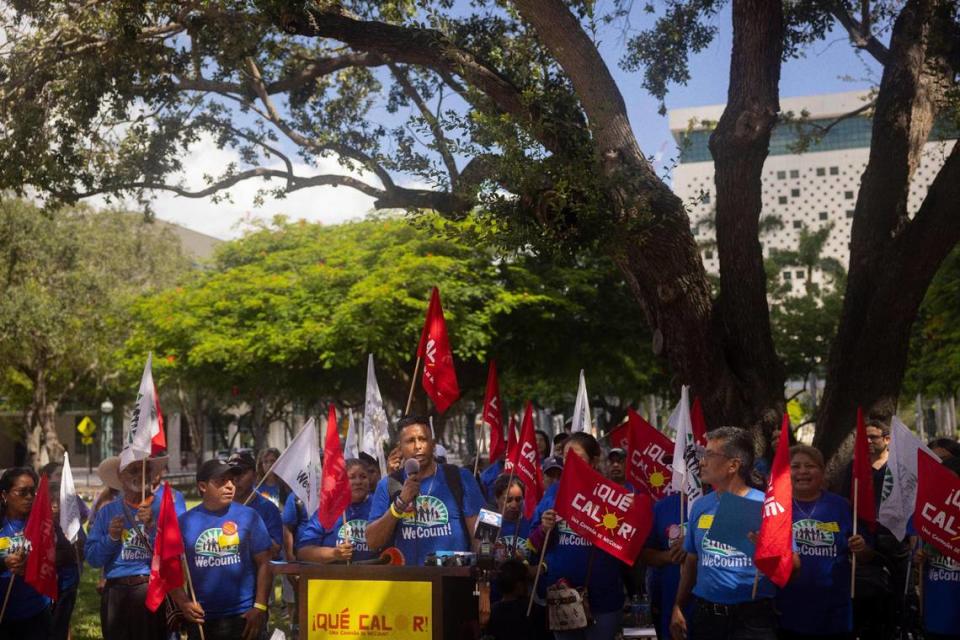
One of the main sticking points is who would be responsible for paying fines. A construction company, for instance, might hire contractors who hire subcontractors who then hire individual workers to do a job. If one of those workers doesn’t have access to water on a hot day, who pays the fine?
The answer to that question still has to be hammered out, according to McGhee.
“What I heard at this moment is that all sides — all sides — need a little more time to craft out this piece of legislation,” he said, referring to industry groups and representatives from WeCount, which has been pushing for this legislation for two years as part of its Que Calor campaign. “They are very close. They’re 95% of the way there. And I do believe that we are going to get there.”
While McGhee said he would leave it up to industry and labor groups to negotiate a deal before the final vote in October, he insisted the basic contours of the bill are non-negotiable. “Whatever version they bring back, it better have protection for heat. It better have water. It better have shade. And it better have liability and also enforcement,” he said.
Strong turnout for public comment
On Monday, roughly 100 WeCount members rallied outside of Government Center before the committee hearing and then filed into the commission chambers to show their support for the bill.
In more than an hour and a half of public comments, 48 workers, nurses, doctors, religious leaders, students and community activists spoke in favor of the bill. They spoke, sometimes tearfully, of coworkers and loved ones who had been hospitalized or died on the job, patients they’d seen coming into emergency rooms with heat-related illness or the heat strokes they had survived while working under South Florida’s unforgiving sun.
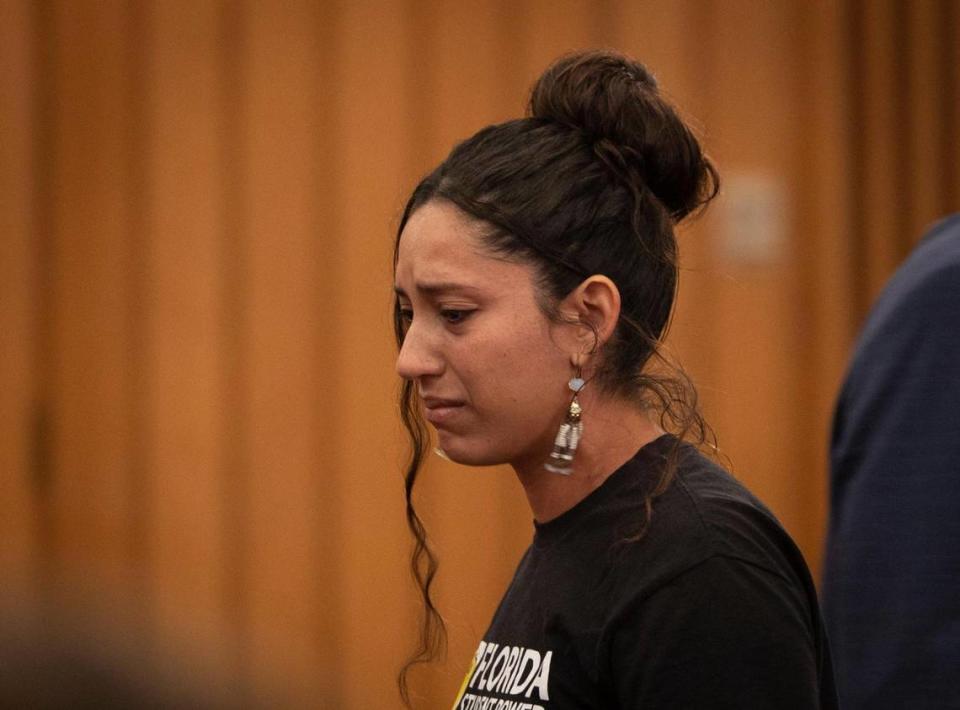
“Rest for us as outdoor workers is essential to protect our health,” said Virginia Pablo, a WeCount member who has worked in South Dade nurseries for seven years. “But unfortunately, I’ve been denied a break on many occasions. At other times, supervisors have told me that if we wanted water we should have brought it from home.”
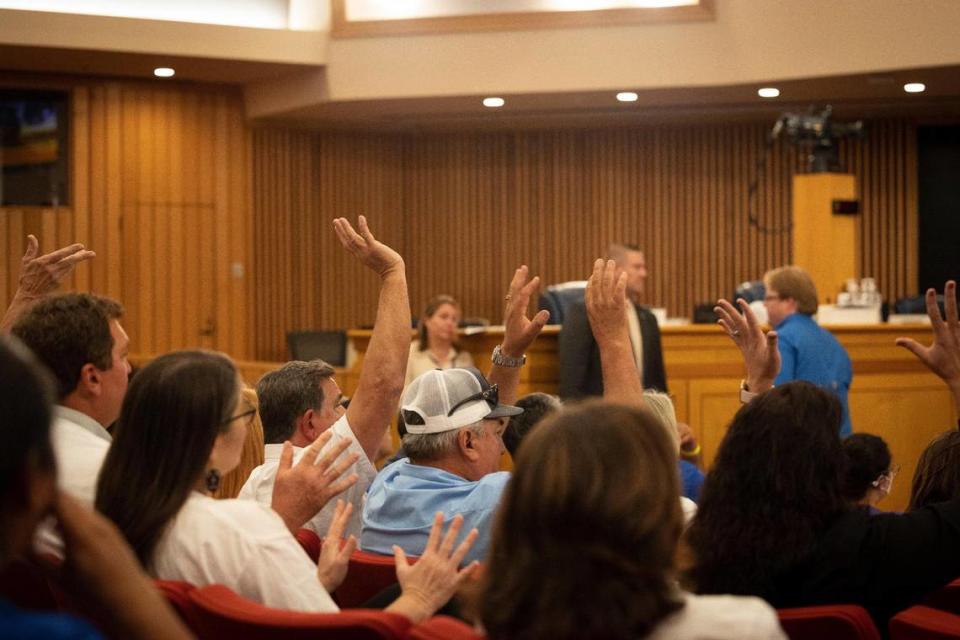
Meanwhile, 12 representatives from construction and agriculture industry groups asked the committee to delay or reject the measure. They argued that the heat standard bill is unnecessary because the federal Occupational Safety and Health Administration (OSHA) already regulates workplace safety
“This ordinance would create a Miami-Dade County version of OSHA,” said Grant Archer, director of government affairs for the Associated Builders and Contractors Florida East Coast chapter. “This ordinance is duplicative. OSHA already regulates the construction and agriculture industry regarding water, rest and shade.”
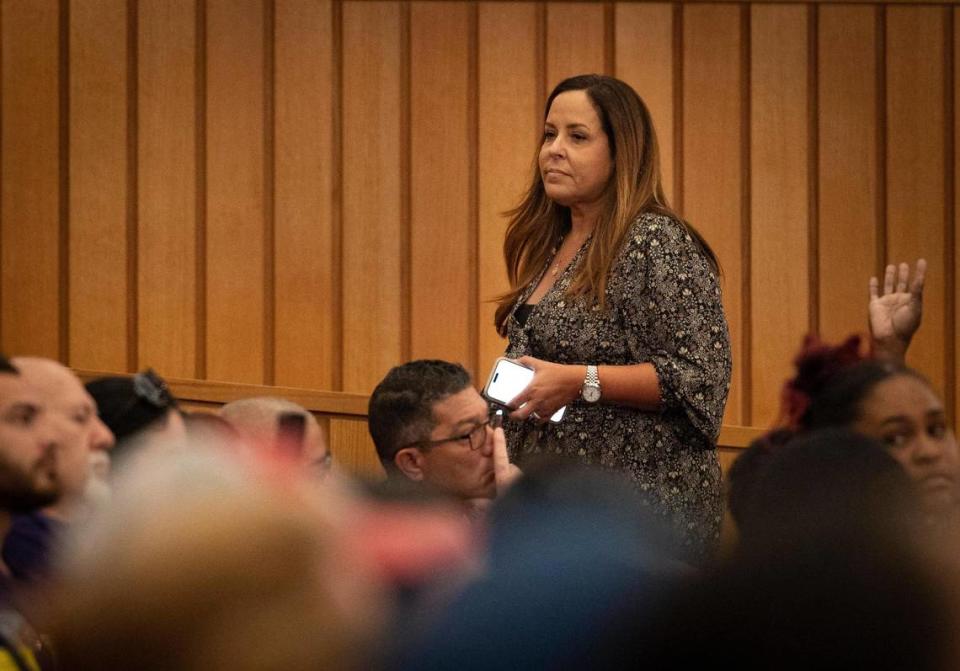
OSHA, however, does not have specific, enforceable rules about workplace heat safety. The agency recommends that employers offer breaks, cold water and shade for outdoor workers on hot days. And the agency’s “general duty” clause requires employers, in broad terms, to provide a safe work environment for their employees.
That has allowed OSHA to occasionally fine companies in extreme cases when workers die on the job. This summer, the agency fined a Broward County farm $15,625 for not protecting its workers after a 28-year-old strawberry picker died of heat stroke.
OSHA is still in the early stages of a years-long process to create an official heat policy, which started in 2021 and could take as much as a decade to complete.
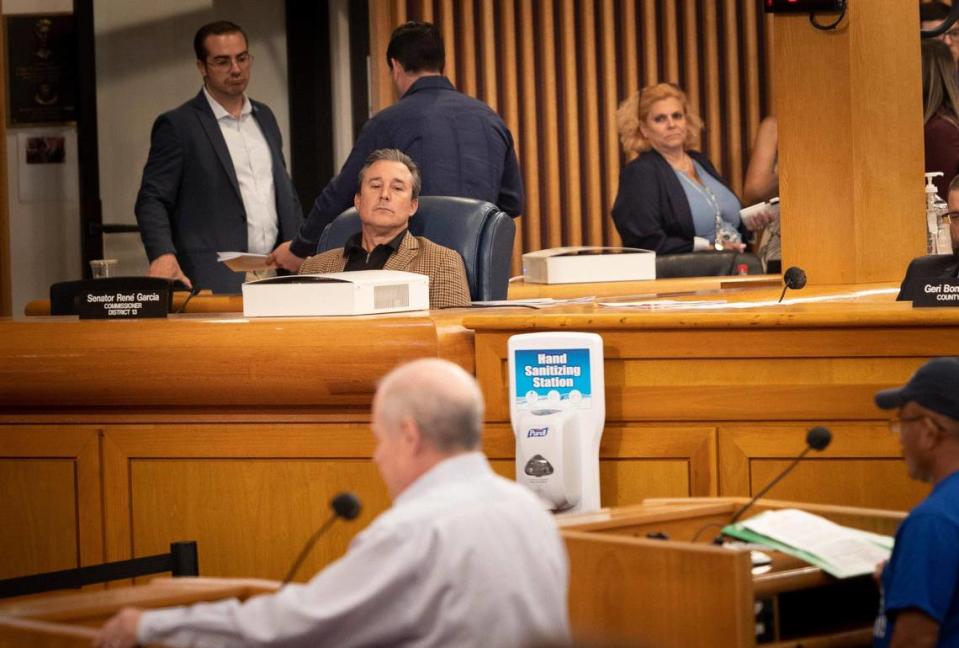
Backroom negotiations decide heat standard’s future
Before the heat standard bill came up for a public hearing on Sept. 11, McGhee called a private meeting between worker groups and industry representatives on Sept. 8 to hash out the construction and agriculture industries’ concerns with the bill.
“This past Friday I set up a meeting where industry leaders came in, they met with…WeCount and they had a discussion about what they want to see and what they didn’t want to see in this piece of legislation,” McGhee said.
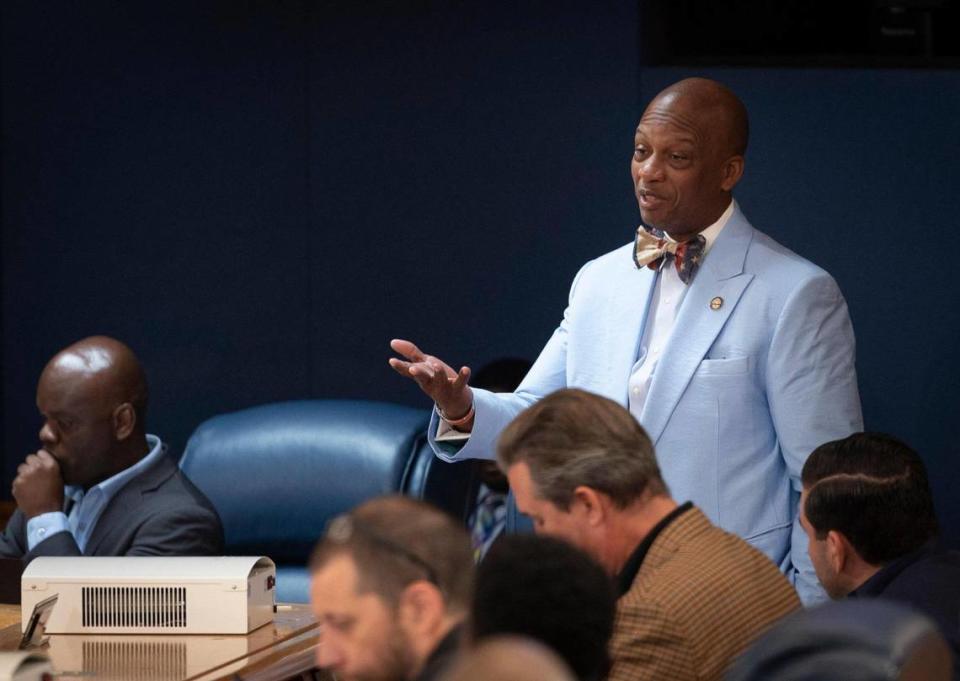
McGhee said industry representatives wanted to tweak the bill so that its requirements kicked in when the temperature, not the heat index, hit 90 degrees. That change would effectively make the heat protections kick in less frequently. McGhee said industry groups also wanted to clarify who is liable for paying fines if there are multiple contractors and subcontractors on a job site.
Construction and agriculture lobbyists also complained that their industries are unfairly singled out in the bill, when there are thousands of outdoor workers in the county in other industries not covered by the bill.
WeCount co-director Oscar Londoño said his group is open to hammering out the details of the liability question and broadening the bill to include more industries, but won’t budge on guaranteeing access to water and shaded breaks or creating fines to enforce the rules.
“We think there’s no reason for responsible employers or industry associations to oppose this if, in fact, they intend to comply with the law,” he said.
McGhee said the final details of the bill will depend on negotiations between industry and WeCount, which will continue outside of the public eye in the run-up to the final vote in October. “Whatever they bring back to me, I am going to file that,” he said.
This climate report is funded by Florida International University and the David and Christina Martin Family Foundation in partnership with Journalism Funding Partners. The Miami Herald retains editorial control of all content.

